Animals
-
 Animals
AnimalsSome dung beetles dig deep to keep their eggs cool
A temperate tunneling species of dung beetle seems capable of adapting to climate change, but their tropical cousins may be less resilient.
-
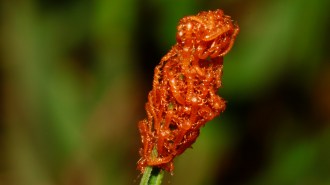 Animals
AnimalsThese beetle larvae lure in bees by mimicking flowers
These parasitic beetle larvae lure in bees with complex floral aromas before hitching a ride back to their nests and eating their eggs.
-
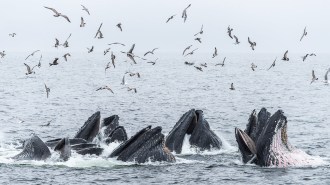 Animals
AnimalsCanadian humpback whales thrive with a little help from their friends
Humpback whales are teaching each other a feeding technique called bubble netting, and it's helping a Canadian population recover from whaling.
-
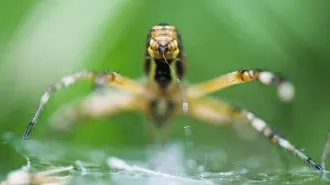 Animals
AnimalsSpider silk-making organs evolved due to a 400-million-year-old genetic oops
An ancient ancestor of spiders and relatives doubled its genome about 400 million years ago, setting the stage for the evolution of spinnerets.
By Jake Buehler -
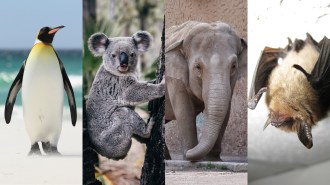 Animals
AnimalsSome vaccines are making progress in protecting vulnerable species
Vaccines can be a crucial conservation tool. But getting shots to wildlife, and developing them in the first place, is tough.
-
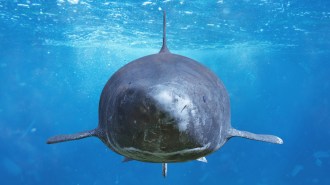 Animals
AnimalsHow Greenland sharks defy aging
When it comes to bucking the biological ails of aging, humans could learn something from Greenland sharks.
By Meghan Rosen -
 Animals
AnimalsAnimals experience joy. Scientists want to measure it
Scientists have long focused on quantifying fear and other negative emotions in animals. Now they’re trying to measure positive feelings — and it’s a challenge.
By Amber Dance -
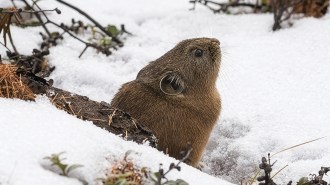 Life
LifeThere’s life beneath the snow, but it’s at risk of melting away
An array of animals and plants survive winter in the subnivium, nature’s igloo. But climate change is threatening this hidden seasonal ecosystem.
- Animals
This tool-using cow defies expectations for bovine braininess
Veronika the cow uses a brush as a tool to scratch herself, revealing rare problem-solving skills and expanding what we know of tool use in animals.
-
 Animals
AnimalsThis fish may play a hole in its head like a drum
The rockhead poacher is a little fish with a big pit in its head. The divot may be like a drum, making sound that rises above a chaotic, nearshore din.
By Jake Buehler -
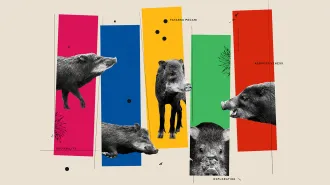 Animals
AnimalsAnimal personalities can play a big role in saving species
From bold foxes to gregarious birds, animals’ personalities are increasingly being seen as crucial to conservation efforts.
-
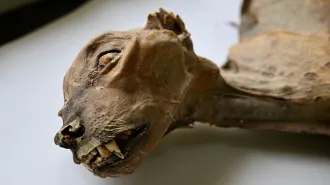 Animals
AnimalsHow cheetah mummies could help bring the species back to Arabia
Arabian cheetah mummies' DNA reveals that the long-lost population could be closely replaced by a cheetah population in northwestern Africa.
By Jake Buehler